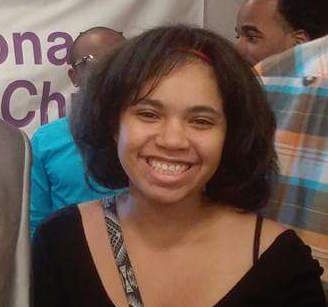A specter haunts the United States, and she is a 15-year-old Black girl named Bresha Meadows, who sits in an Ohio prison today for having saved her mother and two siblings. Bresha’s mother, Brandi Meadows, calls her daughter a hero. Martina Latessa, Bresha’s aunt on her mother’s side and also a Cleveland police officer who specializes in domestic violence cases, says that Bresha was “born into a nightmare” and that Bresha had come to her aunt begging for help from the extreme violence of her father, Jonathan Meadows. Bresha’s cousin, Ja’Von Meadows-Harris, reports that when, as a child, he lived with the Meadows, he was severely, regularly beaten by Jonathan Meadows. In July 2016, then 14-year-old Bresha Meadows ended the violence when she took her father’s gun and fatally shot him. She was arrested that day, and charged with aggravated murder, which could have resulted in a life sentence. She has spent the last ten months in the Trumbull County Juvenile Detention Center. Her family and friends think she’s a hero; the State throws her into a cage, potentially for life.
On Monday, Bresha Meadows “pleaded `true’ — the functional equivalent of a guilty plea — to a charge of involuntary manslaughter, accepting the terms of a settlement deal that her lawyer said will allow her access to psychiatric treatment and the eventual possibility of a clean record.” Bresha Meadows will not be “allowed access to psychiatric treatment.” She will be institutionalized for six months, treatment for which her family will have to pay. That “eventual possibility of a clean record” only occurs after two years of probation.
While the family and Bresha’s lawyer are relieved, they also recognize that this plea deal means two more months in jail and then six months in a different sort of confinement. As Mariame Kabe, one of the organizers of the #FreeBresha campaign, explained, “What’s important is how they’re feeling and how she’s feeling … The position of the #FreeBresha campaign is that plea deals are coercive and they’re a violent means of social control … We’re committed to supporting Bresha’s freedom, and she’s not free yet.” The #FreeBresha campaign stated, “The #FreeBresha campaign is infuriated that 15-year-old domestic violence survivor, Bresha Meadows, has been forced by Ohio prosecutors to submit to a plea deal that would keep her in juvenile detention for a full year (which includes 10 months of time served) and an additional 6 months of incarceration in a `treatment facility. Though an earlier version of the plea deal would have released Bresha to the `treatment facility’ today, the final plea deal has increased Bresha’s time in juvenile detention for another two months. Prosecuting Bresha, including the pointless punitivity of adding time in juvenile detention, should be condemned by all who care about the well-being of children.” The State just couldn’t let Bresha Meadows out immediately, and that inexplicable two months is criminal justice for Black girls and women in this country.
After a lifetime of enduring and witnessing excruciating and extreme violence, of begging for help from family, friends, the State and strangers, a Black girl-child stood up and on her own saved her family. Language matters, and we should tell Bresha Meadows’ story in the language her family uses. She is a hero. News media have continually headlined and framed Bresha Meadows’ story as one of “fatal shooting.” That is not the story. The story is Bresha Meadows’ saved her mother and her two siblings and herself. “The #FreeBresha campaign will continue to push for Bresha’s freedom until she is truly free.” We should all do the same. We should treat our children and our heroes with dignity, reverence, and love. #FreeBreshaMeadows

(Photo Credit: Verso Books)
